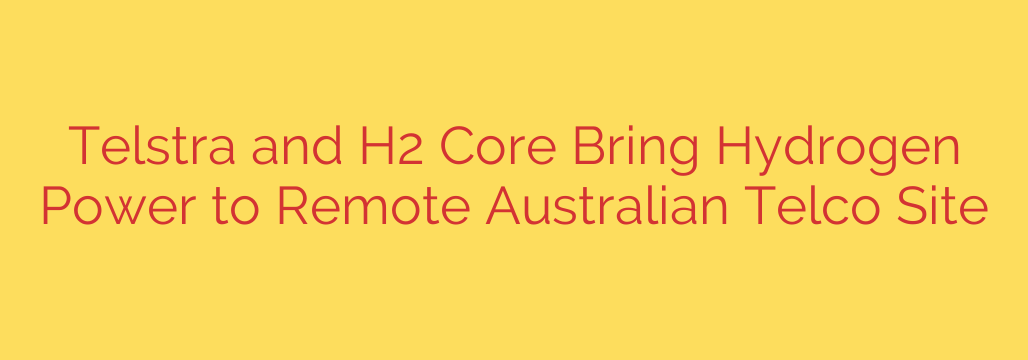
Powering essential infrastructure in remote Australian locations presents unique challenges, often relying on traditional, emissions-heavy methods. However, a significant step forward in clean energy is being taken to support the telecommunications network. A major telco is collaborating with an energy innovator to trial hydrogen fuel cell technology at a challenging off-grid site.
This pioneering project involves deploying hydrogen power solutions to replace conventional power sources, most notably diesel generators. The goal is to provide a more sustainable, reliable, and environmentally friendly way to keep critical remote sites operational. The partner bringing expertise in hydrogen systems is working closely with the telco to integrate this cutting-edge technology.
The trial focuses on demonstrating the effectiveness of hydrogen fuel cells in providing continuous power in demanding conditions where connecting to the main electricity grid is not feasible or cost-prohibitive. Unlike diesel, which produces harmful emissions and requires regular fuel deliveries to remote locations, hydrogen fuel cells generate electricity through an electrochemical reaction, producing only water as a byproduct.
This initiative marks a crucial step in the telco’s efforts towards decarbonization and transitioning its operations to renewable energy. By successfully implementing hydrogen power at challenging off-grid sites, they are paving the way for potentially wider adoption across their vast network, significantly reducing their carbon footprint and contributing to a cleaner energy future for Australia. The success of this trial could set a precedent for how essential infrastructure is powered in challenging environments globally.
Source: https://www.datacenterdynamics.com/en/news/telstra-taps-h2-core-to-deploy-self-sufficient-hydrogen-solution-at-remote-telco-tower-in-australia/








